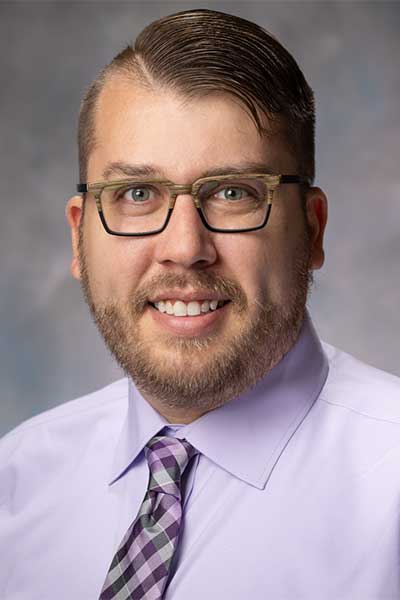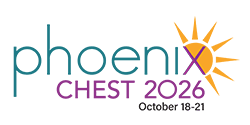
A long-standing challenge in pediatric medicine is that treatment approaches are often based on data from studies in adult populations. This makes it especially important for pediatric specialists to share information and stay up to date on the latest pediatric-specific recommendations and guidance, said Eric Mull, DO.
“There is a common saying in pediatrics—‘children are not simply small adults,’” he said. “Their physiology is different and the way diseases present or progress often does not mirror what we see in adults.”
Dr. Mull, Assistant Professor of Pediatrics in the Divisions of Pulmonary and Sleep Medicine at the Ohio State University College of Medicine and Nationwide Children’s Hospital, will chair the CHEST 2025 session Updates on Procedures and Therapies in Pediatrics at 9:15 am CT on Wednesday, October 22, in McCormick Place, South Building, Room 505. A panel of pediatric pulmonary and critical care specialists will discuss the latest developments and innovations in pediatric pulmonary medicine, including advances in extracorporeal membrane oxygenation (ECMO), bronchoscopies, and noninvasive ventilation.
“When we try to extrapolate adult data to children, we run into several problems. Dosing may not be accurate, safety profiles may not hold true, and the outcomes that matter in adults are not always the most relevant in pediatrics,” Dr. Mull said. “The key point is that while adult studies can guide us at times, we really need to rely as much as possible on pediatric-specific data to ensure therapies are both safe and effective for our patients.”
Dr. Mull will begin the session with an update on the latest evidence and recommendations on the use of bronchoscopy in pediatric patients.
“We’ve seen some important advances in pediatric bronchoscopy in areas such as transbronchial biopsy brushing for different types of diagnostic criteria, for example, as well as in therapeutic guidance for treating things like pulmonary hemorrhage and for clearing out secretions,” he said.
Neel Shah, MD, Assistant Professor of Pediatrics in the Division of Critical Care at Washington University School of Medicine and St. Louis Children’s Hospital, will discuss advances in pediatric ECMO, including the use of artificial intelligence (AI) in predicting outcomes and guiding care.
“Dr. Shah has been working on AI applications that show great promise for improving prognostics and outcomes for pediatric ECMO use,” Dr. Mull said. “When it’s used appropriately, AI has a lot of great uses and can give us the opportunity to close the gap between adult and pediatric research.”
Sabrina Palacios, MD, Assistant Professor of Pediatrics in the Divisions of Pulmonary and Sleep Medicine at the Ohio State University College of Medicine and Nationwide Children’s Hospital, will discuss the value of multidisciplinary clinics, which bring together subspecialists in a single setting to improve coordination, communication, and outcomes for pediatric patients and their families.
“Taking care of our pediatric patients might include pulmonologists, critical care physicians and nurses, psychologists, case managers, and other subspecialists,” Dr. Mull said. “Having all of these specialists in one clinical setting allows us to optimize care and communicate more effectively with our colleagues and, importantly, with patients and their families.”
While there remains a knowledge gap between adult and pediatric medicine, Dr. Mull said, there is an increasing amount of research being conducted that is specifically designed for pediatric patients, contributing to more targeted and effective care.
“I think there is good reason to be optimistic about the future of pediatric care, not only in our field but in medicine in general,” he said. “Pediatrics is a field with enormous opportunities for innovation, and the advances we’re seeing now are making a real difference in outcomes for children.”

Call for Topics Is Open
Feeling inspired by all the great sessions in Chicago? Help shape the curriculum for CHEST 2026, October 18 to 21 in Phoenix, by submitting topic ideas from areas you’re passionate about, topics affecting your practice, or new technologies you’d like to learn more about. The submission deadline is Tuesday, December 2, at 2 pm CT.


